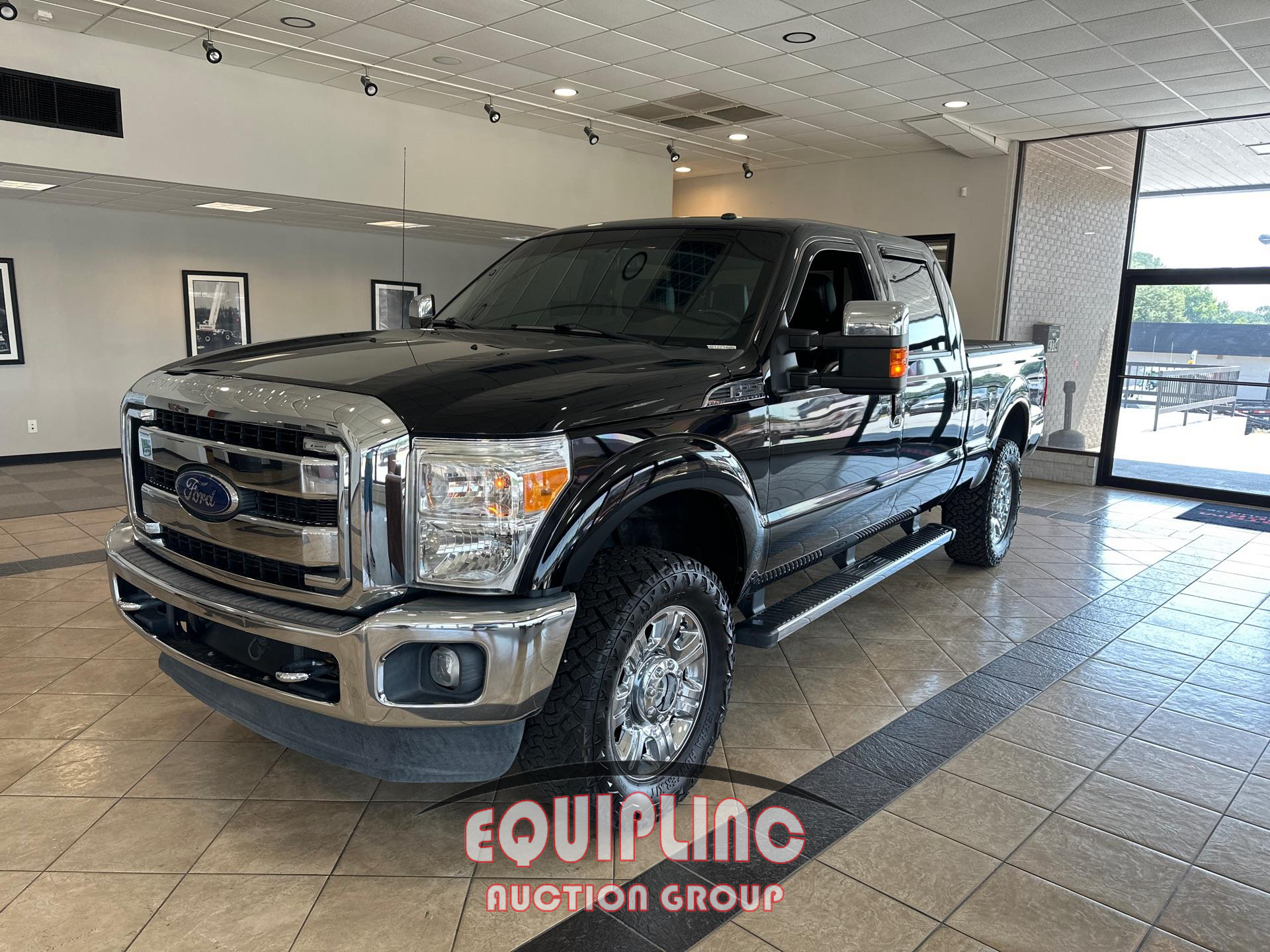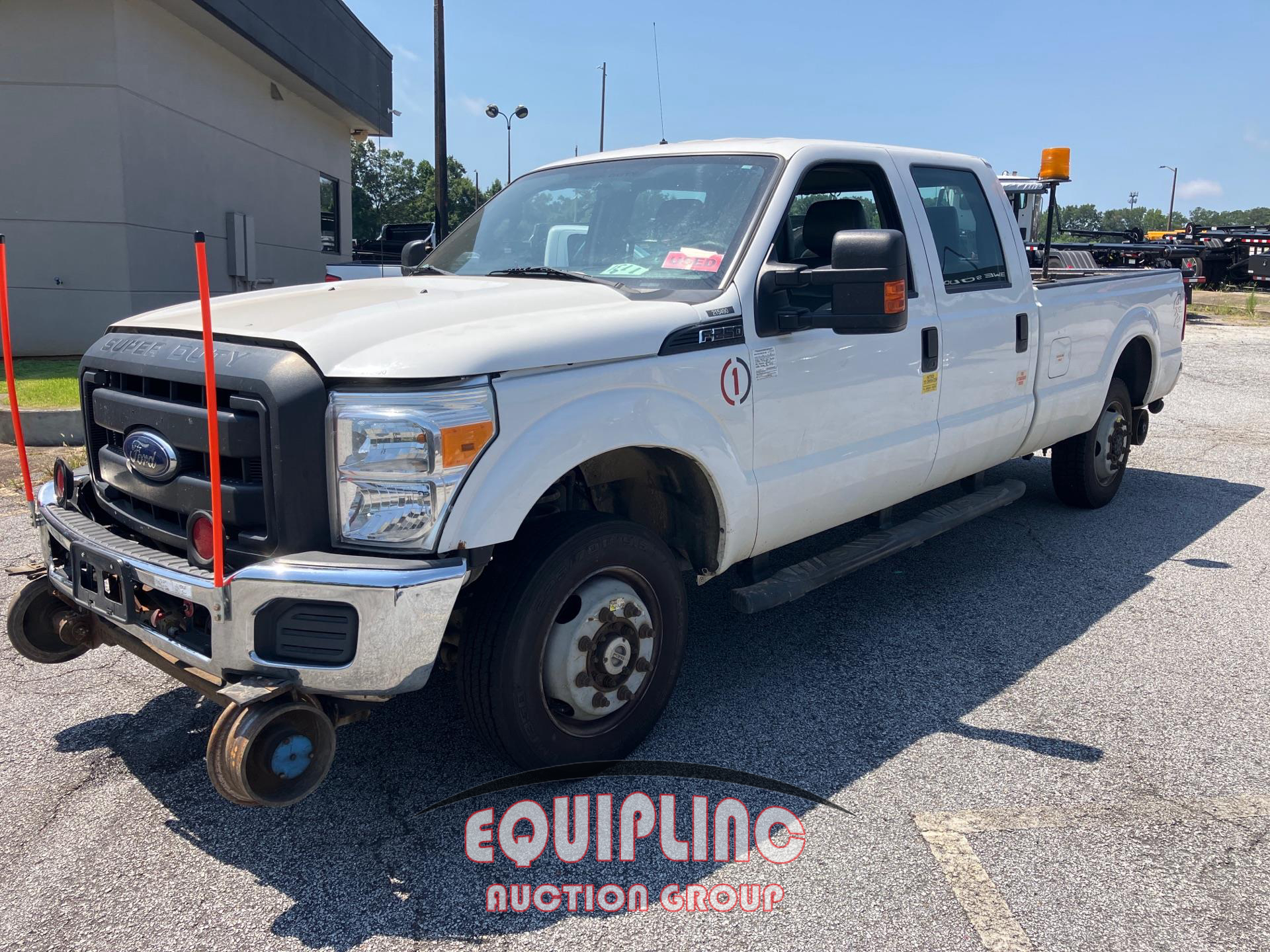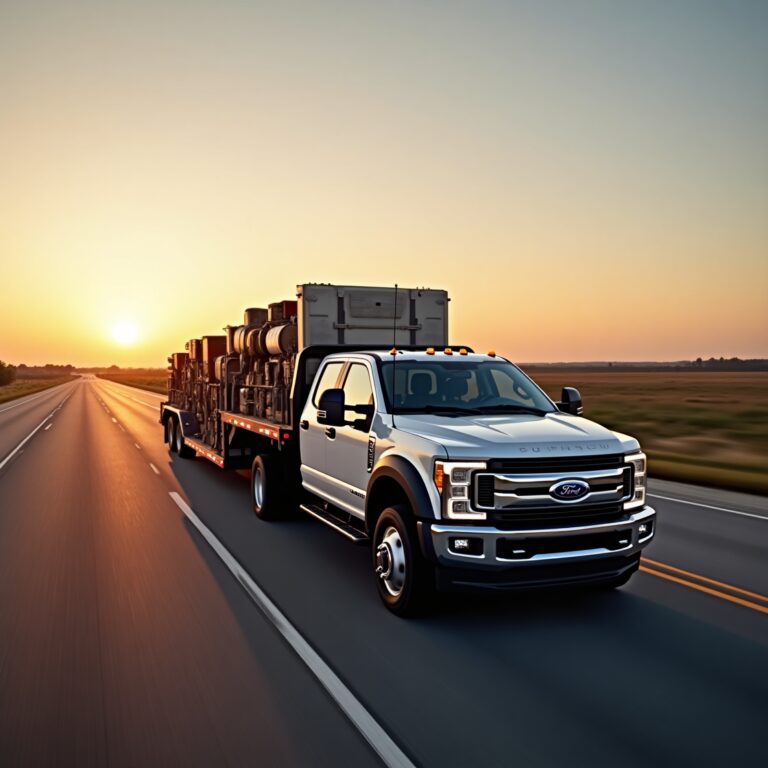The Lone Star Workhorse: A Comprehensive Guide to Buying Used Ford F-250 Trucks for Sale in Texas

The Lone Star Workhorse: A Comprehensive Guide to Buying Used Ford F-250 Trucks for Sale in Texas
Texas, a land of vast open spaces, booming industries, and a deeply ingrained culture of hard work and self-reliance, is arguably the truck capital of the world. Here, a pickup truck isn’t just a vehicle; it’s an indispensable tool, a family hauler, and often, a symbol of freedom and capability. Among the titans of the Texas truck market, the Ford F-250 Super Duty stands tall – a legendary workhorse known for its unparalleled power, durability, and versatility.
While a brand-new F-250 is a significant investment, the used market in Texas offers an abundance of these formidable machines, providing an excellent opportunity for buyers to acquire a heavy-duty truck at a more accessible price point. This comprehensive guide will delve into why the used Ford F-250 is such a coveted asset in the Lone Star State, what to look for when buying one, where to find the best deals, and how to ensure you drive away with a truck that will serve you faithfully for years to come.
Why the Ford F-250 Super Duty Reigns Supreme in Texas
The F-250, part of Ford’s Super Duty line, is engineered for tasks that lighter trucks simply can’t handle. In Texas, these capabilities are not luxuries but necessities for a wide array of individuals and industries:
-
Unmatched Towing and Hauling Capacity: From pulling horse trailers across sprawling ranches to hauling construction equipment to job sites, or towing a fifth-wheel RV for a weekend getaway, the F-250’s robust frame, powerful engine options, and heavy-duty suspension are designed for serious loads. Its high Gross Vehicle Weight Rating (GVWR) and impressive Gross Combined Weight Rating (GCWR) are critical for commercial and recreational users alike.
-
Engine Powerhouses: The F-250 typically offers a choice between potent gasoline V8 engines and the legendary Power Stroke diesel V8.
- Gasoline Engines: Modern gas engines, like the 6.2L Boss V8 or the newer 7.3L "Godzilla" V8, offer ample power for most tasks, are generally less expensive to maintain than diesels, and perform well in stop-and-go city driving.
- Power Stroke Diesel: The Power Stroke engine is the heart of the F-250’s heavy-duty reputation. Known for its immense torque, incredible towing prowess, and longevity when properly maintained, a diesel F-250 is often the preferred choice for those who routinely tow extremely heavy loads or log high mileage. Different generations (7.3L, 6.0L, 6.4L, 6.7L) have their own characteristics and reputations, which we’ll touch on later.
-
Built Ford Tough: This isn’t just a slogan; it’s a design philosophy. F-250s are built with durable components, heavy-duty axles, and strong transmissions designed to withstand years of rigorous use. This inherent toughness makes them ideal for the challenging terrains and demanding work environments often found in Texas.
-
Versatility and Customization: Beyond their work capabilities, F-250s are surprisingly versatile. They can be configured with various cab styles (Regular, SuperCab, Crew Cab) and bed lengths, accommodating families, work crews, or specific equipment. The aftermarket for F-250s is also enormous, allowing owners to customize their trucks with lift kits, upgraded wheels and tires, auxiliary lighting, utility beds, and more.
The Strategic Advantage of Buying Used in Texas
Opting for a used F-250, particularly in Texas, offers several compelling advantages:
-
Significant Cost Savings: New trucks depreciate rapidly. A used F-250, even a few years old, can represent substantial savings compared to a new model, allowing buyers to get more truck for their money or to allocate funds for accessories and maintenance.
-
Abundant Inventory: Texas’s massive truck market means a vast inventory of used F-250s. This high supply leads to competitive pricing and a greater chance of finding the exact trim, engine, and features you desire. Many trucks are traded in by businesses upgrading their fleets or individuals who frequently update their vehicles, often meaning well-maintained options are available.
-
Proven Reliability: While any used vehicle requires scrutiny, many F-250s have already proven their mettle. Their long-term reliability is well-documented, and common issues with specific model years or engine types are often known and can be addressed.
-
Ready for Work: Many used F-250s in Texas come with features or modifications already installed that are essential for local industries, such as gooseneck hitches, toolboxes, or upgraded suspensions. This saves the new owner time and money on outfitting the truck.
-
Lower Insurance Costs: Generally, insurance premiums for used vehicles are lower than for new ones, adding to the overall cost savings.
Where to Find Your Used F-250 in the Lone Star State
The Texas market offers diverse avenues for purchasing a used F-250:
-
Ford Dealerships (Certified Pre-Owned & Used Lots):
- Pros: Often have the highest quality used trucks, many of which are certified pre-owned (CPO) with extended warranties and rigorous inspections. They offer financing options, trade-in services, and a professional buying experience.
- Cons: Prices tend to be higher than private sales.
-
Independent Used Car Dealerships:
- Pros: Can offer competitive pricing and a wide variety of brands. Some specialize in trucks and may have a knowledgeable sales team.
- Cons: Quality can vary significantly. Due diligence is crucial, as their inspection processes may not be as stringent as manufacturer-certified programs.
-
Online Marketplaces (Private Sellers):
- Examples: Craigslist, Facebook Marketplace, AutoTrader, Cars.com, eBay Motors.
- Pros: Often the best deals can be found here, as there’s no dealer markup. Direct communication with the seller can provide valuable insights into the truck’s history.
- Cons: "As-is" sales, meaning no warranty or recourse if issues arise after purchase. High risk of scams, misrepresentation, or hidden problems. Requires significant buyer vigilance and mechanical knowledge.
-
Auctions (Public & Dealer):
- Pros: Potential for significant savings, especially if you know what you’re looking for.
- Cons: High risk. Vehicles are sold "as-is" with little to no opportunity for detailed inspection or test drives. Primarily recommended for experienced buyers or those with a trusted mechanic on standby.
-
Word of Mouth/Local Classifieds: Sometimes the best deals are found through personal connections or local bulletin boards. Ranchers, contractors, or small business owners may be looking to sell their well-maintained trucks directly.
Crucial Considerations When Inspecting a Used F-250
Buying a used heavy-duty truck, especially one that has likely seen hard work, requires a thorough inspection. Here’s what to meticulously examine:
-
Vehicle History Report (CarFax/AutoCheck): This is non-negotiable. Look for accident history, flood damage (less common in Texas but possible after major storms), consistent service records, odometer discrepancies, and previous ownership details. A truck with a clean title and documented maintenance is always preferable.
-
Mechanical Inspection (Professional is Best):
- Engine:
- Gasoline: Check for leaks (oil, coolant), strange noises (knocking, ticking), smoke from the exhaust (blue for oil, white for coolant, black for rich fuel mixture), and overall smoothness.
- Diesel (Power Stroke): Each generation has specific known issues.
- 7.3L (1994.5-2003): Legendary for reliability, but check for oil leaks, injector issues, and glow plug problems. Simpler emissions system means fewer modern headaches.
- 6.0L (2003-2007): Known for reliability issues like Head Gasket failures, EGR cooler problems, and oil cooler clogging. Many have been "bulletproofed" (upgraded parts to address these issues), which is a significant plus. Ask for proof of "bulletproofing."
- 6.4L (2008-2010): Generally considered the least reliable Power Stroke. Prone to DPF (Diesel Particulate Filter) issues, turbo failures, and injector problems. Often "deleted" (emissions equipment removed) by owners, which is illegal for street use in some areas but common.
- 6.7L (2011-Present): A powerful and generally reliable engine. Check for DPF/DEF (Diesel Exhaust Fluid) system issues, turbo health, and coolant leaks. Emissions systems require specific maintenance.
- General Engine Checks: Look for excessive blow-by (remove oil cap while running and check for smoke/pressure), proper fluid levels, and signs of neglect.
- Transmission: Check fluid (color, smell), shift smoothly through all gears (including reverse), listen for clunks or grinding. Test 4×4 engagement (if applicable).
- Brakes: Check pads, rotors, and fluid. Ensure the pedal feels firm.
- Suspension and Steering: Look for worn ball joints, tie rods, shocks, and springs. Check for excessive play in the steering wheel. Listen for creaks or groans over bumps.
- Tires: Even wear across all tires is crucial. Mismatched or severely worn tires indicate neglect or alignment issues.
- Underbody/Frame: Look for rust (less common in Texas due to dry climate, but check near the coast or on older vehicles), bent frame rails, or damage from off-roading or heavy impacts.
- Engine:
-
Exterior Examination:
- Body Panels: Check for dents, scratches, misaligned panels, or paint discrepancies that could indicate unreported accidents or bodywork.
- Lights & Glass: Ensure all lights work, and there are no cracks in the windshield or mirrors.
- Rust: While less prevalent in Texas than in northern states, check wheel wells, rocker panels, and the bed for signs of corrosion.
-
Interior Assessment:
- Comfort & Electronics: Test all power windows, locks, radio, air conditioning (critical in Texas!), heater, and any other electronic features.
- Upholstery & Carpet: Check for tears, stains, and excessive wear. Bad odors can indicate water damage or neglect.
- Dash Lights: Ensure no warning lights (Check Engine, ABS, Airbag) are illuminated.
-
Test Drive: This is your final exam.
- Drive on various road types: highway, city streets, and ideally, some rougher terrain if you plan to use it off-road.
- Listen for unusual noises (whines, clunks, squeals).
- Feel for vibrations, pulling to one side, or hesitant acceleration.
- Test the brakes at different speeds.
- Engage and disengage 4×4 if equipped.
Trim Levels and What They Offer
Used F-250s come in various trim levels, significantly impacting price and features:
- XL: The basic work truck. Vinyl seats, minimal features, robust and no-frills. Ideal for dedicated work.
- XLT: A step up, offering cloth seats, power accessories, and more creature comforts. A popular choice for a balance of work and daily driving.
- Lariat: Mid-range luxury with leather seats, upgraded infotainment, more chrome, and advanced features.
- King Ranch/Platinum/Limited: Top-tier luxury trims with premium leather, advanced driver-assist features, unique styling, and all the bells and whistles. These will command a higher price, even used.
Understanding the trim level helps you determine if the features match your needs and budget.
The Buying Process: From Research to Ownership
-
Set a Realistic Budget: Don’t just consider the purchase price. Factor in sales tax, registration, potential repairs, insurance, and fuel costs. Heavy-duty trucks, especially diesels, can have higher maintenance costs.
-
Do Your Homework: Research specific model years, engine types, and their known issues. Online forums and owner groups are invaluable resources.
-
Pre-Purchase Inspection (PPI): Once you’ve narrowed down your choices, invest in a PPI by an independent, trusted mechanic who specializes in heavy-duty trucks (or even Fords specifically). This can uncover hidden problems and save you thousands in future repairs.
-
Negotiate Smart: Be prepared to negotiate, especially with private sellers. Know the market value of the truck you’re interested in. Don’t be afraid to walk away if the deal doesn’t feel right.
-
Secure Financing (If Needed): Get pre-approved for a loan from your bank or credit union before visiting a dealership. This gives you leverage and a clear understanding of your budget.
-
Paperwork: Ensure all titles are clean, and the bill of sale is accurate. Understand Texas vehicle registration and titling requirements.
-
Insurance: Get insurance quotes before purchasing. Premiums can vary significantly based on the truck’s age, your driving record, and the level of coverage.
Beyond the Purchase: Owning a Used F-250 in Texas
Congratulations! You’ve found your Texas workhorse. But the journey doesn’t end there:
- Regular Maintenance: Adhere to the manufacturer’s recommended maintenance schedule. For diesel F-250s, this often includes specific oil types, fuel filter changes, and DEF refills. Regular maintenance is key to longevity.
- Fuel Economy: Be realistic. Heavy-duty trucks are not known for their fuel efficiency. Diesel models generally get better mileage than gas, especially when towing, but both will consume more fuel than a lighter vehicle.
- Parts Availability: Ford F-250 parts are widely available through dealerships, auto parts stores, and online retailers, making repairs and maintenance relatively straightforward.
- Customization: Texas is the land of truck customization. Whether it’s a modest leveling kit, aggressive tires, or a full-blown lift, the options are endless. Factor these costs into your budget if you plan modifications.
Conclusion: Your Texas F-250 Awaits
The used Ford F-250 Super Duty for sale in Texas represents an exceptional opportunity for individuals and businesses seeking a reliable, powerful, and capable heavy-duty truck without the new-truck price tag. With its inherent durability, a strong aftermarket, and a vast inventory in the truck-centric Lone Star State, finding the perfect F-250 is well within reach.
By understanding the F-250’s capabilities, recognizing the advantages of the used market, meticulously inspecting potential purchases, and approaching the buying process strategically, you can confidently drive away in a Texas-tough F-250 that’s ready to tackle any challenge the vast landscapes and demanding industries of the state throw its way. Your next adventure, or your next big job, starts with the right truck, and for many Texans, that truck is a used Ford F-250.

